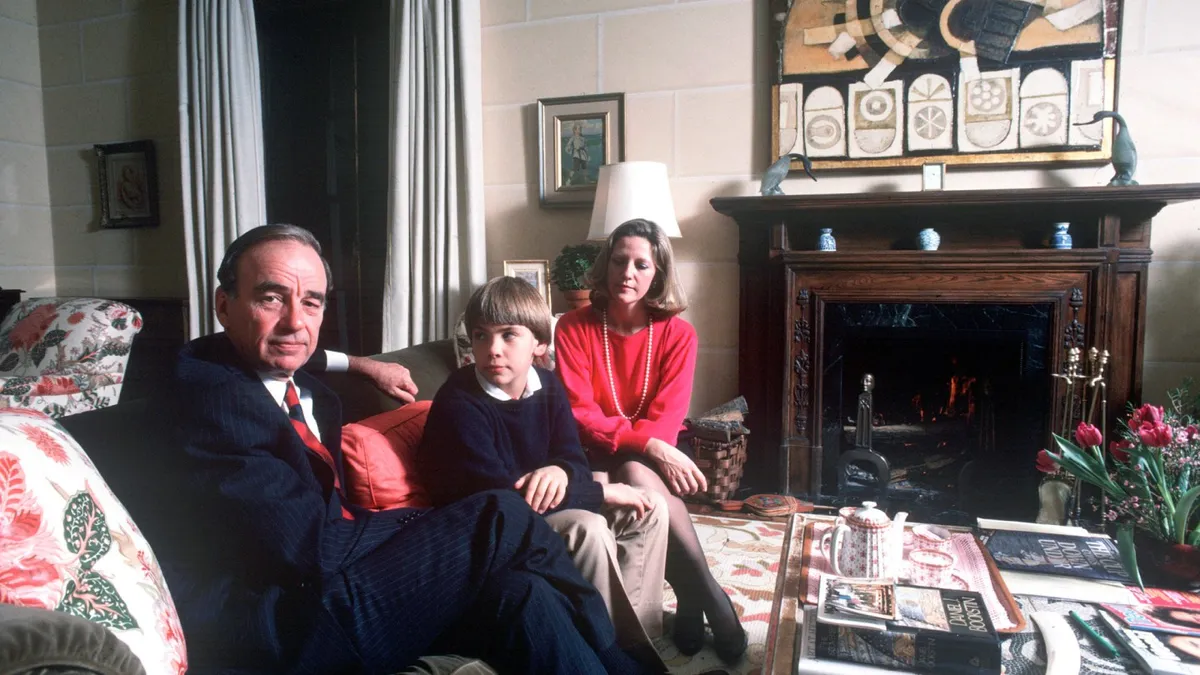
Just a few months ago, many industry experts believed that Rupert Murdoch was losing his grip on the vast media empire he had built. A failed attempt to modify the family's irrevocable trust raised questions about the future of his two major companies: News Corp. and Fox Corp., two of the most powerful media entities in the United States. While Lachlan Murdoch, Rupert's chosen successor, had been managing the businesses for several years, the inability to persuade a court to alter the trust meant that Lachlan's siblings—James, Elisabeth, and Prudence—would hold significant veto power over the companies. This situation led to speculation about whether Rupert and Lachlan would sell parts of the empire to avoid a potential family crisis before Rupert's passing or the trust's expiration in 2030.
On September 8, coinciding with Lachlan Murdoch’s 54th birthday, a surprising turn of events unfolded. Lachlan's siblings agreed to cash out of the family business in a staggering $3.3 billion settlement, a decision that sent shockwaves through the media industry, effectively marking the conclusion of an era. This family settlement has significant implications for the media landscape, ensuring Lachlan's control over both companies until at least 2050. This consolidation of power is not just about control; it reinforces the conservative foundations of both News Corp. and Fox Corp., providing reassurance to investors wary of any shifts in Fox’s political stance.
In a note dated September 9, MoffettNathanson analyst Robert Fishman remarked that the settlement “removes any risk that a change to Fox News’ politics would degrade the value of Fox’s assets.” He further noted that this resolution alleviates the uncertainties that investors had to consider, allowing Fox to fully focus on strategic initiatives without the looming threat of a succession crisis.
The settlement, while reducing Lachlan’s share of voting power to 36 percent at Fox and 33 percent at News Corp., still provides him with ample authority to fend off any activist investors or hostile takeover attempts. Lachlan's influence has already been evident in the company's recent strategic moves, such as Fox's $440 million acquisition of the free ad-supported streaming service Tubi in 2020. Moreover, the company is actively pursuing creator-driven content, positioning itself to navigate the declines in traditional linear TV.
Wall Street analysts are optimistic that with succession concerns now behind them, Fox is poised to engage in significant deal-making. The company boasts a robust balance sheet, characterized by minimal debt and strong cash flow, making it an attractive player in the media space. Lightshed analyst Rich Greenfield suggested that Lachlan's cemented control in a post-Rupert era could lead to increased aggressiveness in mergers and acquisitions (M&A), hinting at potential investments in original content as well.
This settlement signifies not only a shift in the Murdoch family dynamics but also heralds the dawn of a new era in the media industry. Traditional media gatekeepers are facing unprecedented challenges from platforms like YouTube, TikTok, and Instagram, which have transformed how audiences consume content. As Lachlan solidifies his position at Fox, other media players are also recalibrating their strategies. For instance, David Ellison at Paramount is preparing to lead the legendary studio and CBS, signaling a potential shift in how news is approached, especially with new strategic moves involving conservative media figures.
As companies like Paramount engage in deal talks, the competitive landscape is characterized by major players splitting their assets—such as Comcast’s spin-off of CNBC and MSNBC, and Warner Bros. Discovery’s impending division. There’s speculation about Ellison’s interest in Warner Bros. and potential buyers eyeing CNBC, although the newly formed Versant has shown no desire to sell.
In the backdrop of these shifts, The Walt Disney Co. is nearing a decision on its next CEO, who will need to navigate a rapidly changing media landscape and decide the future direction for its investments in linear television through ABC and ESPN. For the Murdoch family, maintaining influence was a pivotal aspect of the settlement, especially considering the trust dispute that revolved around ensuring that Fox remained a strong conservative media voice.
Despite facing challenges in court, where a probate court commissioner criticized Rupert’s attempts to alter the trust, the settlement ultimately allowed for a resolution that secured Lachlan’s leadership. This development is particularly significant as Rupert has faced health issues, raising concerns about the family’s control over the media empire.
As Lachlan Murdoch exits the family business alongside his siblings, he walks away with substantial financial gain, marking the end of an era dominated by Rupert Murdoch and Sumner Redstone. With a new generation of media moguls poised to take the reins, the media landscape is likely to evolve significantly, challenging the traditional paradigms and positioning Big Tech as a formidable player in the industry.
As the Murdoch family navigates this transition, the ramifications of their decisions are set to echo throughout the media world for years to come. The media industry is entering an exciting yet uncertain phase, one that will be shaped by the decisions made by Lachlan Murdoch and his contemporaries as they redefine the future of media.